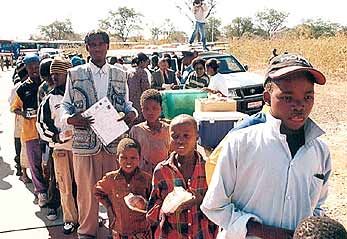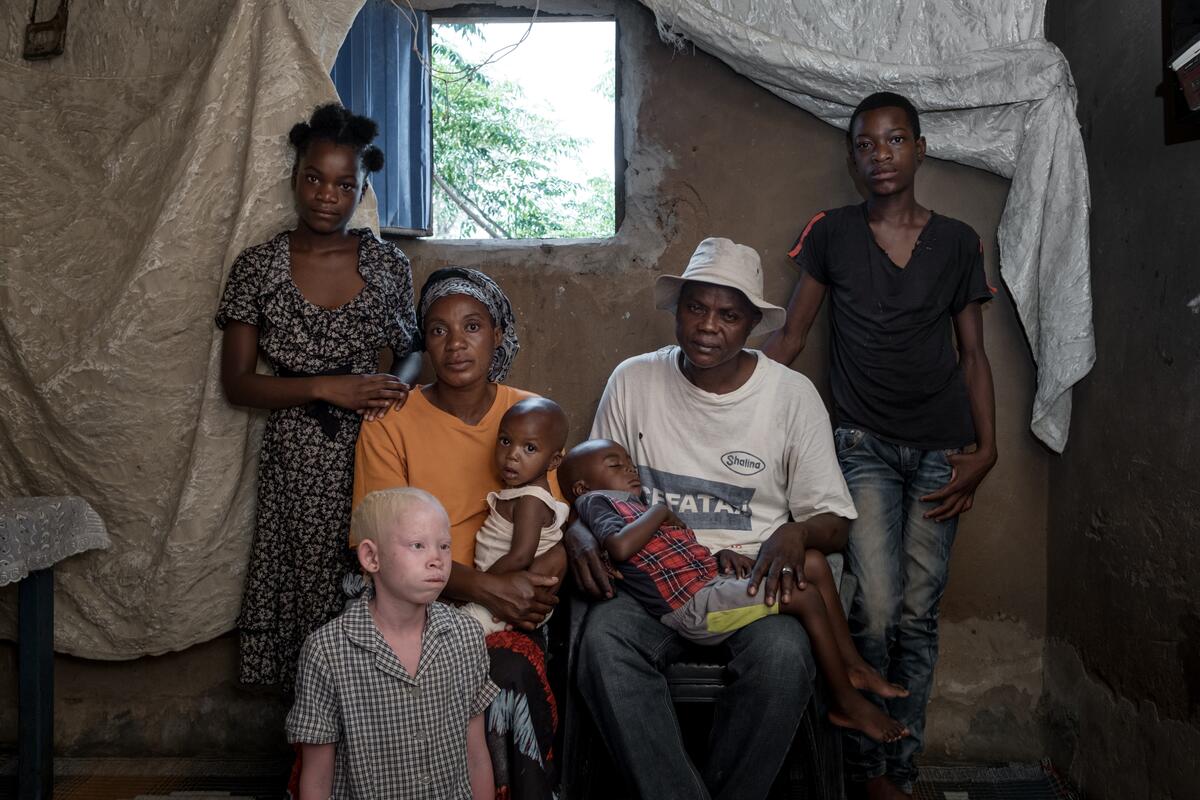Feature: Returnee seeks to police peace in Namibia
Feature: Returnee seeks to police peace in Namibia

OMEGA, Namibia (UNHCR) - He was an active youth in exile, but "life in the refugee camp is not the same as life at home", said Domingos Bereu, beaming as he arrived in his home village in Namibia to a warm welcome by family and friends.
During his two years in Botswana's Dukwi camp, Bereu, 28, had played an active part in his host community. Besides attending school, he also mobilised his fellow refugees to take part in activities like sports, HIV/AIDS campaigns and self-help initiatives. He learnt a lot at the camp, but when the option came to return home, he jumped at it.
In mid-August, Bereu joined the first group of Namibians in Dukwi camp to go back to Caprivi province in north-eastern Namibia under a UNHCR voluntary repatriation operation. The province, located on a strip of Namibian territory wedged between Botswana, Zambia and Angola, has been caught in the region's conflicts for decades.
Bereu hails from Omega, an old army base set up by the South African Defence Forces (SADF) during the apartheid years. More recently, the Caprivi region saw an unsuccessful rebellion in 1998, and was used as a base for Angolan government troops fighting rebels from the National Union for the Total Independence of Angola (UNITA).
Bereu and his brother fled Namibia in 2000 with five other youths when their village was attacked by what they called bandits. They trekked 40 km overnight through the jungle, crossed the border and approached a police station in Botswana. They were eventually transferred to Dukwi camp in the north-eastern part of Botswana.
At Dukwi, the two brothers had to learn to live with refugees of different cultures and nationalities from Angola, the Great Lakes region and the Horn of Africa. But they were lucky because there were already fellow Namibians who helped them upon their arrival at the camp. These Namibian refugees had arrived after fleeing the 1998 rebellion and the fallout of the Angolan conflict in Caprivi.
Among the Namibians at Dukwi, there are Barakwenas (Bushmen), Mafwas, Lozis and other ethnic groups. The Barakwenas used to lead a nomadic life and are largely illiterate. During colonial times, they were drafted into the SADF and formed the notorious Koevoet Battalion within that army. Upon independence, some of them retreated to South Africa with the SADF while others remained in Namibia. There are reports that some of these ex-Koevoet are somewhere in South Africa, afraid to return to Namibia, where they may still be seen as traitors.
The Mafwas are better educated. Very few of them returned to Namibia during the recent repatriation operation, preferring to adopt a "wait and see" attitude in Dukwi.
Bereu, however, had been waiting to go home for a long time. He made up his mind after a fact-finding "go-and-see" visit to his home area in June, and became one of the 853 Namibian refugees who have so far registered for voluntary repatriation.
"There is no more danger in my country," he said, pointing to Angola's cease-fire agreement and the easing of tensions in Caprivi province.
Arriving in Omega, Bereu was met by his ex-wife and three-year-old son, whom he had left behind when he fled. His parents, relatives and neighbours also turned up to welcome him.
Barely settled into his old home, Bereu is already making plans for the future. "I want to resume my studies and become a policeman," he said. As a police officer, he hopes "to teach my fellow Namibians about peace and therefore ensure that people should no longer flee to become refugees in other countries".
By Fidellis Swai
UNHCR Regional Office for Southern Africa






